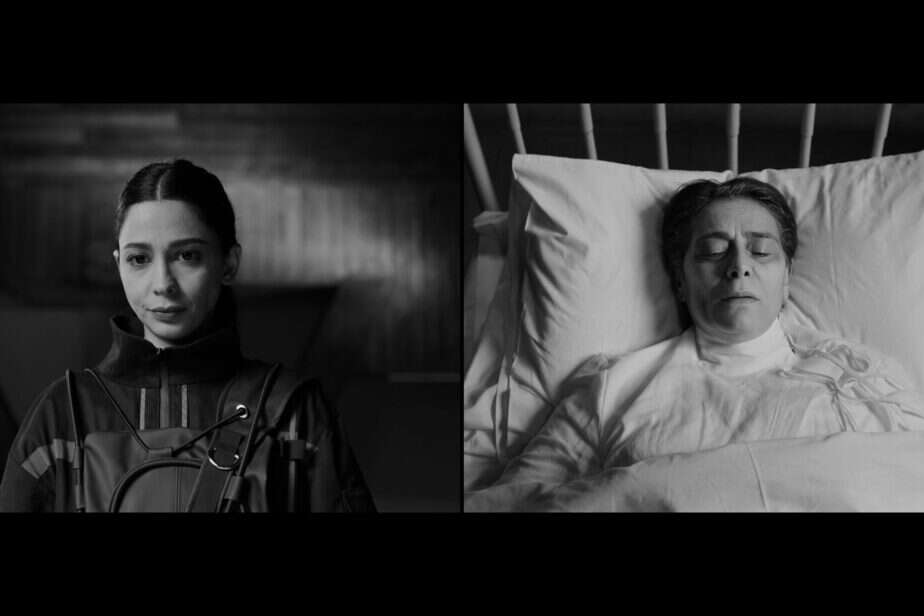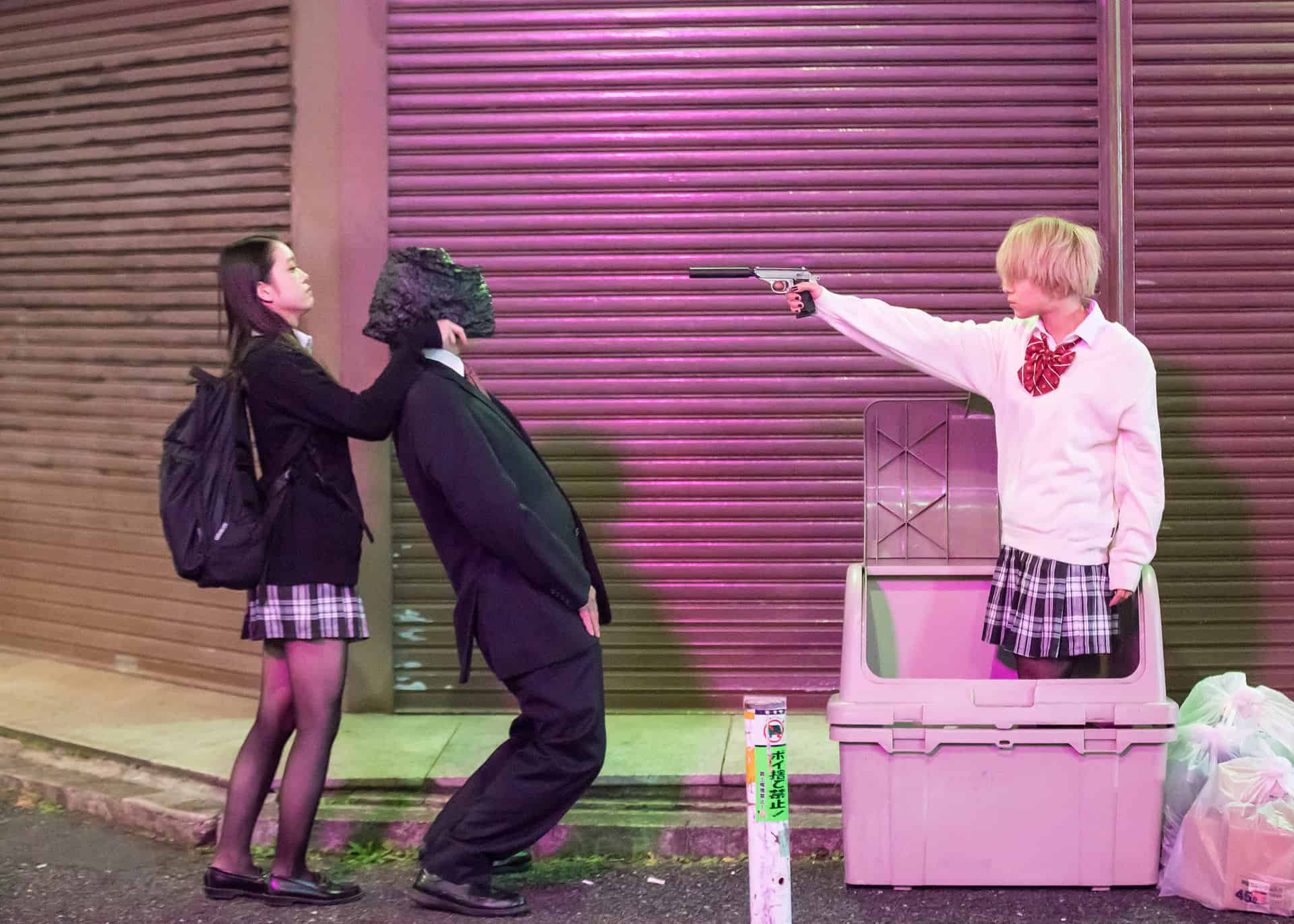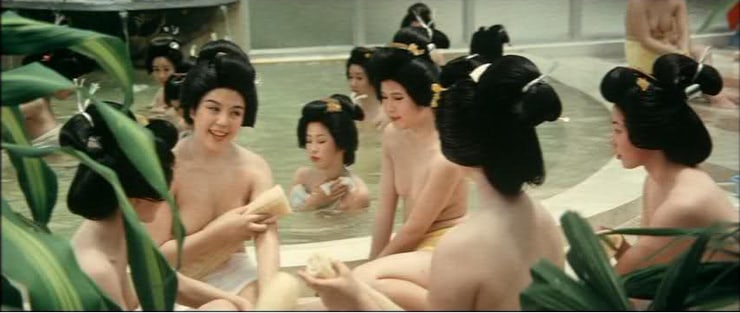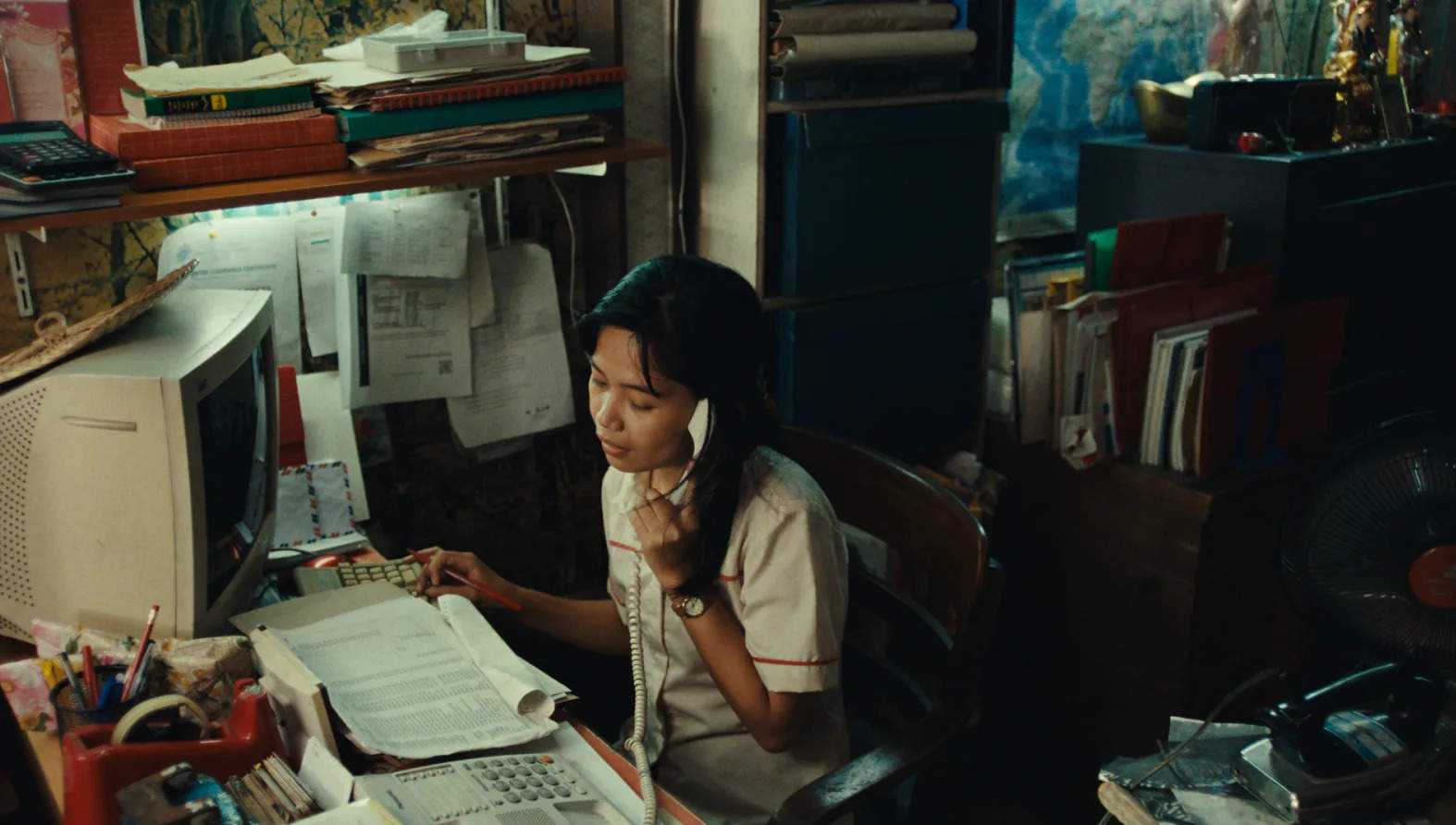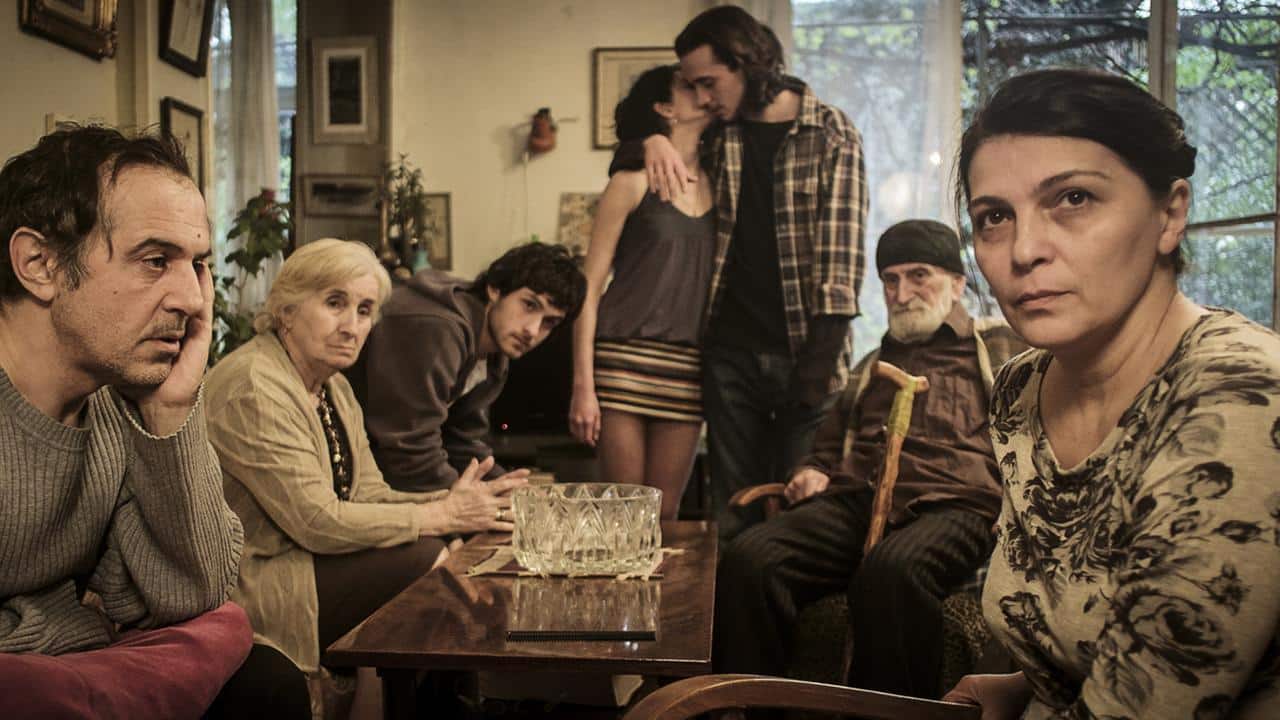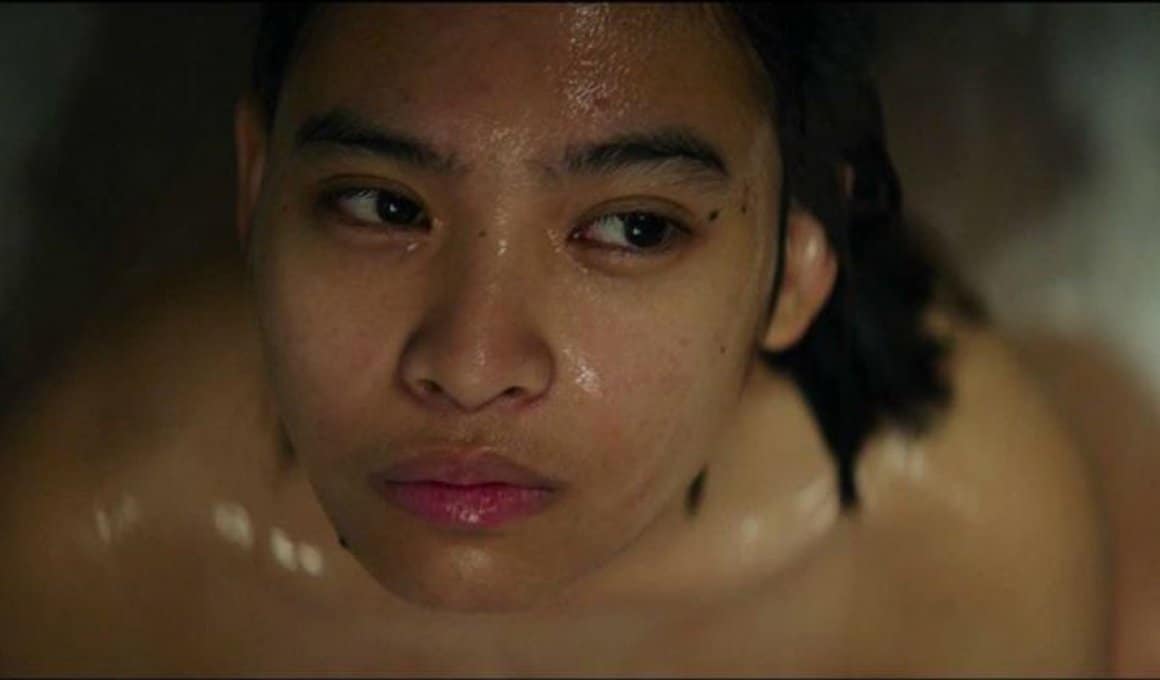Born in East Jerusalem, Larissa Sansour is a renowned artist who lives and works in London and New York. Her dystopian tale “In Vitro”, that is running in the Short Movie Competition of the BFI London Film Festival, was commissioned by the Danish Arts Foundation for the 58th Venice Biennale, and is co-directed and written with Danish writer Søren Lind.
“In Vitro” is screening at the BFI London Film Festival 2019

In the aftermath of a massive eco-disaster, two scientists meet under the city of Bethlehem in the underground nuclear reactor turned bunker, turned orchard, where a new beginning for the human species is planned. In the orchard, sprouts from collected heirloom seeds are nursed to be planted and replenish the fields, bees will be bred for pollination and new genetically engineered humans will revive the planet.
The two scientists are two women of different age and their discussion is a reflection about exile and the ephemeral concept of past, present and future. The older scientist (Hiam Abbass) is probably the founder of the restoration project and she is on her deathbed, while the visiting younger woman (Maisa Abd Elhadi) is one of the cloned-DNA humans of the project. She had a set of memories of a past that doesn't belong to those implanted in her mind, and is trapped in a void present, between a past that she knows through someone else's memories but she has never seen, and a future that she will have to rebuild on the model of those very memories.

Although the “implanted memories” is a science fiction trope that we all have seen before in other movies – “Blade Runner” to name one – “In Vitro” is actually incredibly reminiscent – in subject and visual – of the 1962 French science fiction featurette “La Jetée”, by Chris Marker, where in a similar contest, scientists exploit the potentials of memories.
Dark and fascinating, “In Vitro” utilizes the cinematic language of the science fiction genre to introduce a reflection over the power and the fallacy of memories and nostalgia, but it also ponders over war, ecology and exodus. All themes that hit close to home for the geographical location of the film, but that are also sadly universal. “You have never known anything but absence” the old scientist tells the engineered human and it is a familiar cry that deeply resonates with all the exile-born souls.

The stunning quality of the black and white cinematography, courtesy of DoP Anna Valdez Hanks, seamlessly blends the gloomy brutalist interiors of the bunker with images of bygone Bethlehem and the in-vitro-constructed nostalgia, with an extensive but strangely pleasant use of the split screen. Also impressive are the CGI images of a black petrol-like liquid flooding and submerging the biblical city, hinting to an ecological Armageddon.
Multifaceted, profoundly symbolic, and a treat for the eyes, “In Vitro” is a remarkable work that makes you want more. Please!


